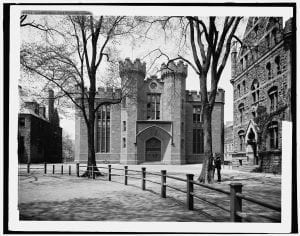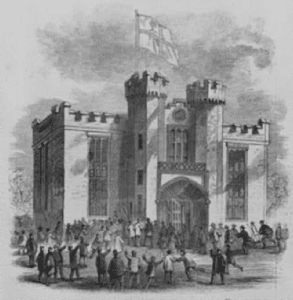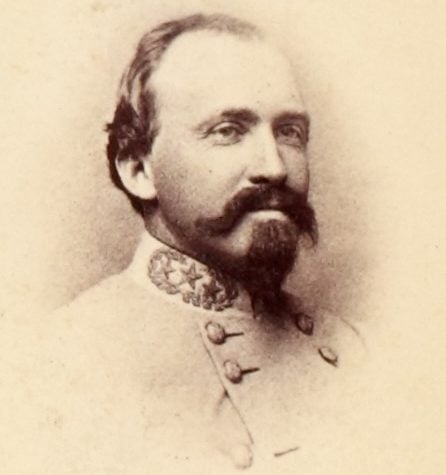
Sunday mornings were usually quiet at Yale University. Not so on the January 20th, 1861, when students and professors woke to find a secession flag on top of a campus building. During the night some students had raised a flag with a red cross displayed in the center. On the cross were 15 stars representing states, five of which had already seceded. In the upper left corner were the crescent moon and palmetto tree of South Carolina. A month earlier South Carolina had been the first state to secede from the Union.
The event became news across the country. Frank Leslie’s Illustrated Weekly not only reported the event, but showed an illustration of the flag atop the building (left). Today we know this banner as the South Carolina Sovereignty Flag, and it is still flown today. It also has an enduring life in an altered form: the Confederate Battle Flag, with a diagonal cross instead of an upright one.
It may interest you to know that a third of the Yale men killed on Civil War battlefields were Confederates. The names of Yale soldiers killed in the Civil War, Union and Confederate, were carved into a marble memorial at Yale in 1915.
Thirteen Yale Confederates reached the rank of brigadier general, and 2 ultimately became major generals. One of the major generals was William “Rooney” Lee, son of Robert E. Lee, who began his Confederate career as a captain of cavalry. But while there were many Confederate Yale officers at various ranks, there were 43 who never rose above private.
One Yale alumnus served as Confederate Attorney General, and later held two cabinet posts. He was the most senior government official from Yale, North or South. Jefferson Davis’ private secretary was a Yale graduate.

Southern students began returning to Yale in 1866, and there must have been plenty of conversations about the flag that had been raised five years earlier. But the healing continued, and in the 1870’s ivy from Robert E. Lee’s home was planted on the Yale campus.





More Stories
General Dwight D. Eisenhower’s Reflection on Robert E. Lee
Sad Woke Charlottesville liberals Melt down infamous statue of Robert E Lee
NC Appeals Court rules for Town of Louisburg in removal of Confederate monument